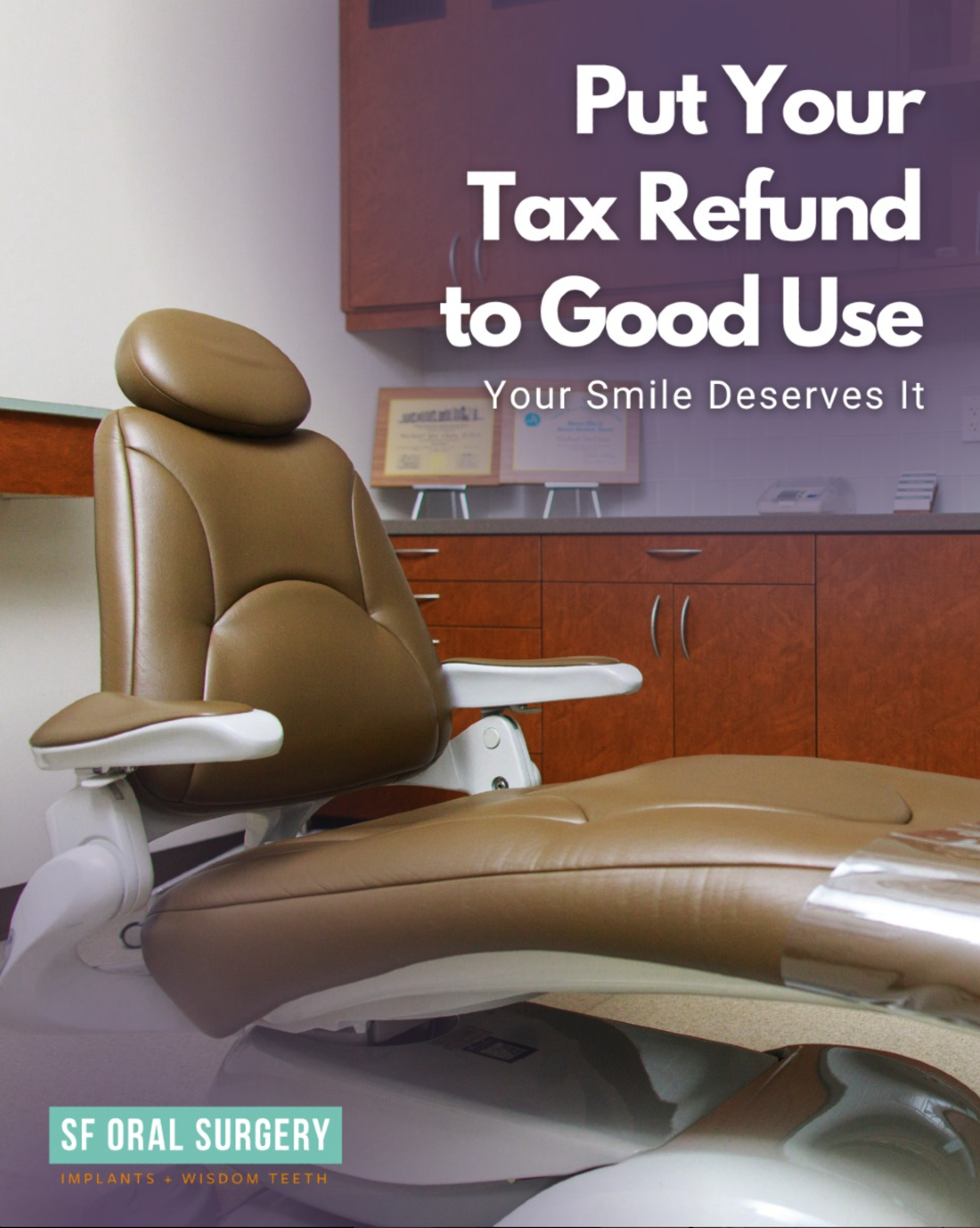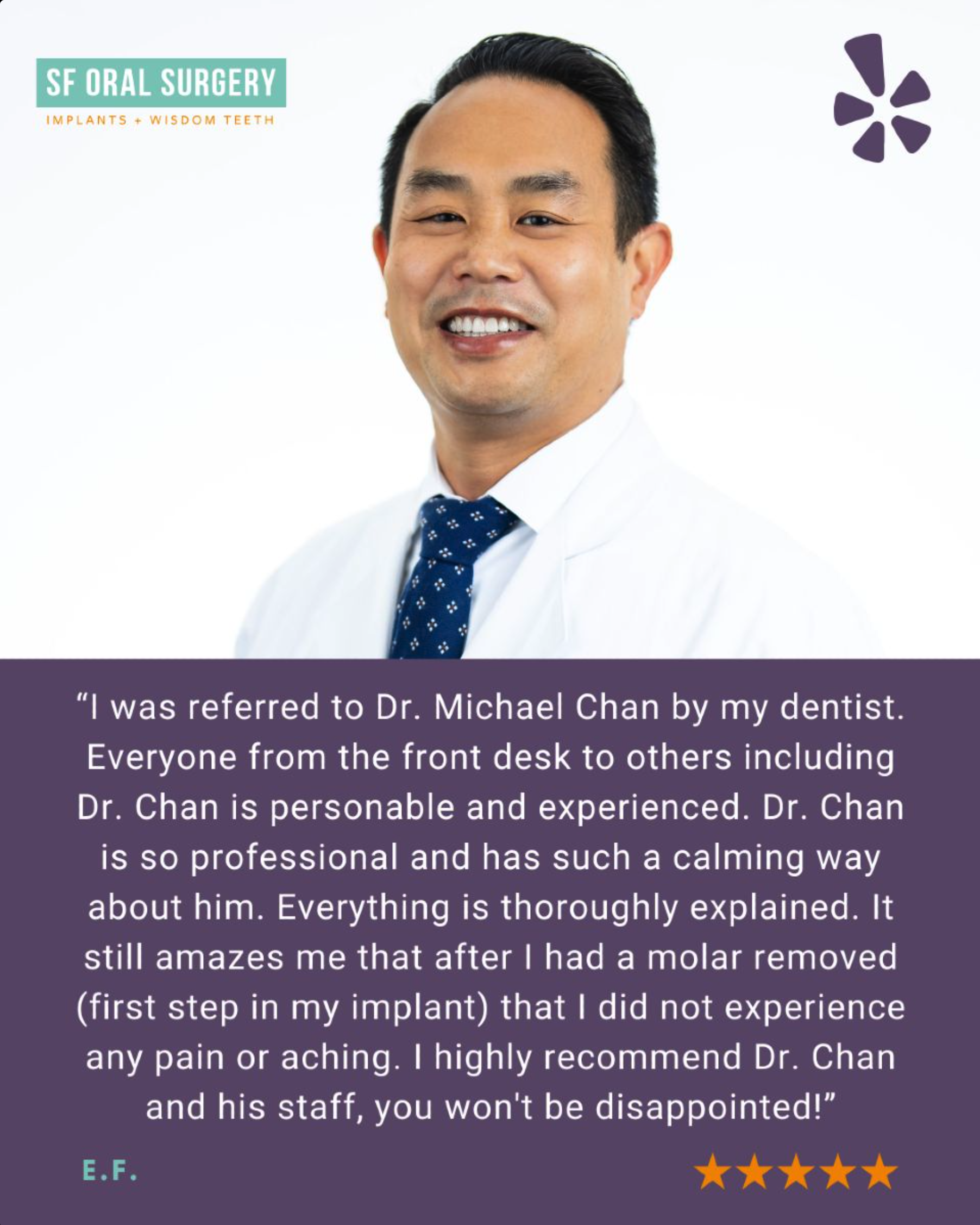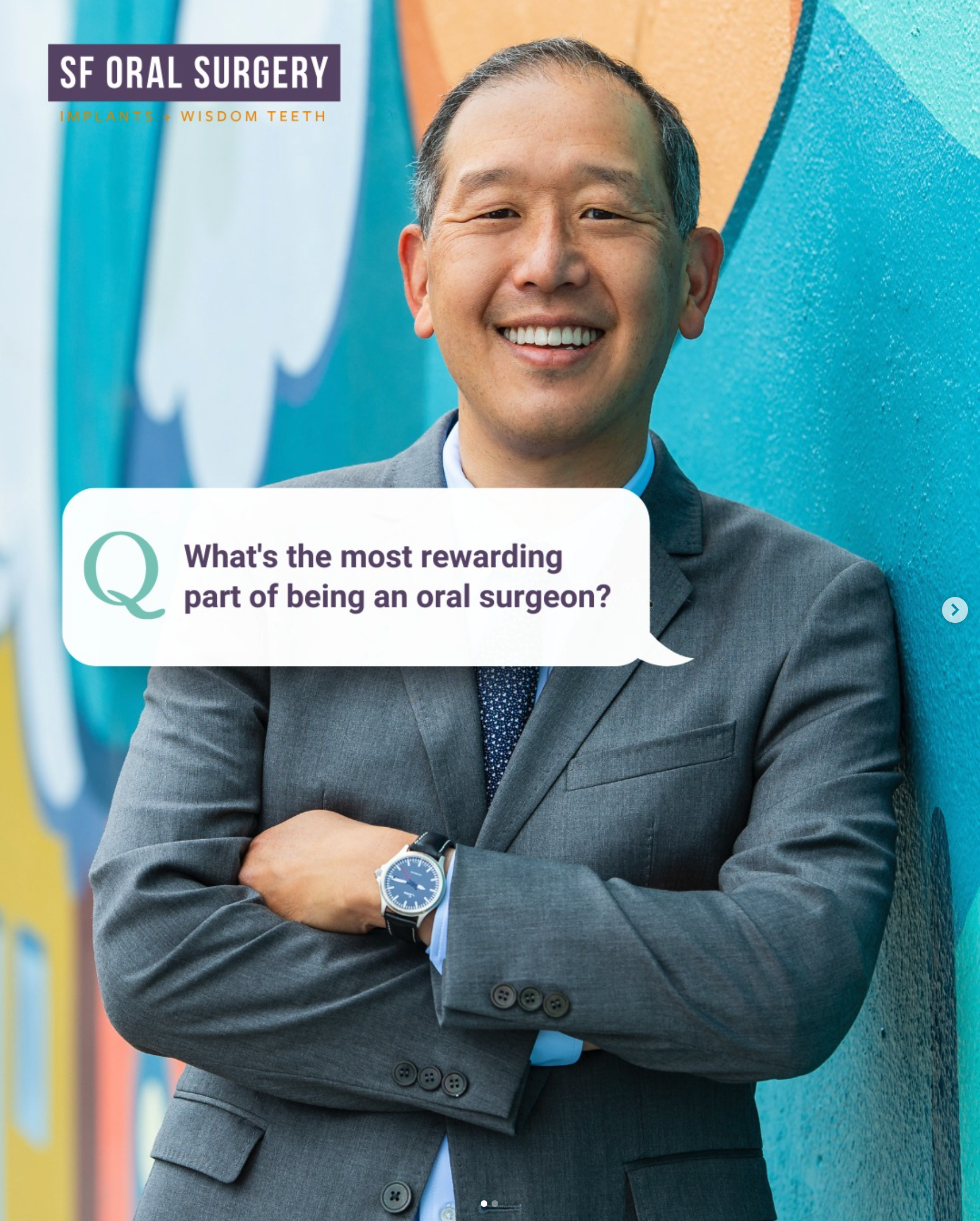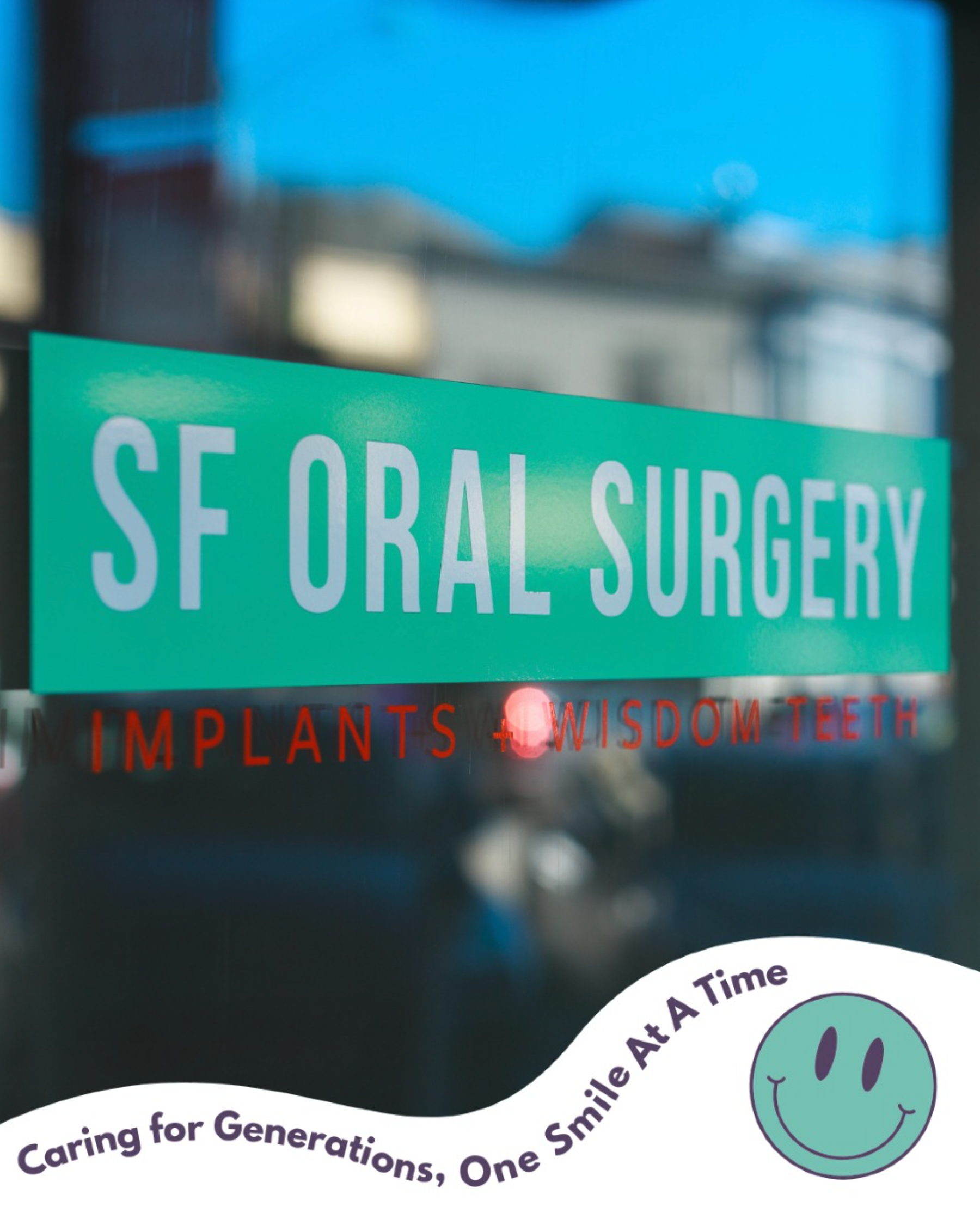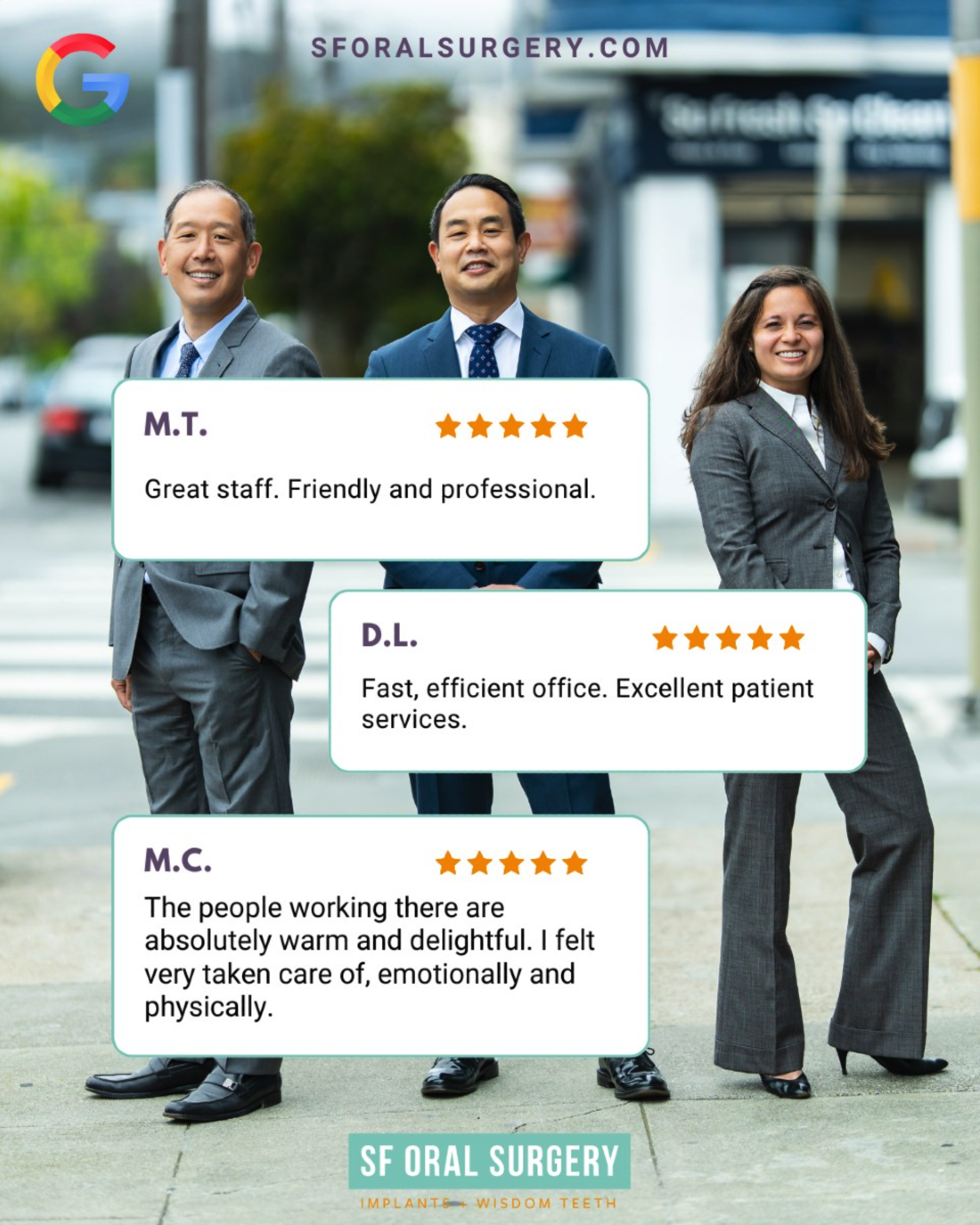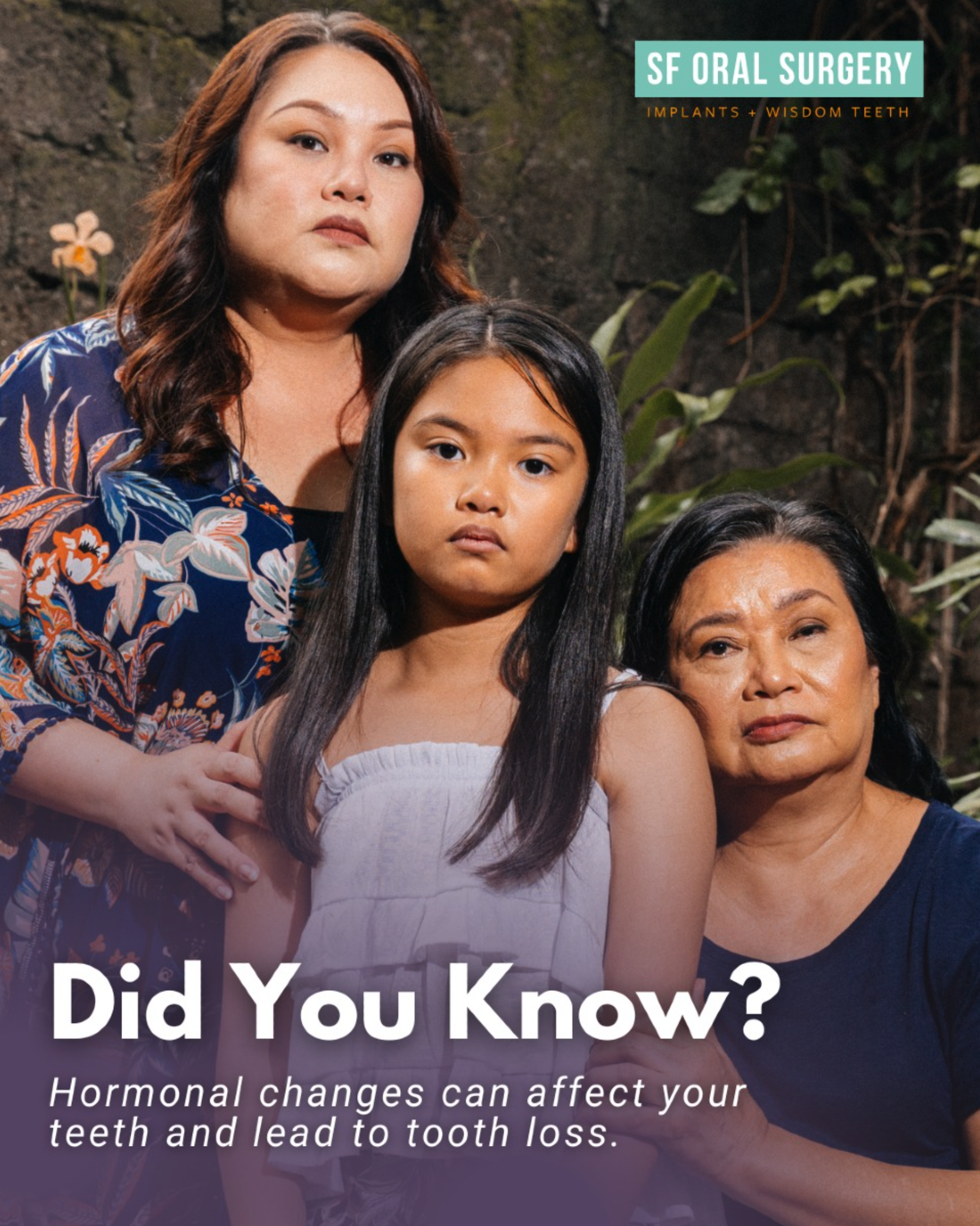San Francisco patients who experience facial trauma in the form of car accidents, sports injuries, or other traumatic circumstances often require extensive care to restore their appearance. SF Oral Surgery provides patient-first care in facial trauma reconstruction cases. While the physical component of emergency care and acute treatment are important aspects of oral and maxillofacial surgery, there are often emotional repercussions that linger long after the initial trauma has healed. This necessitates the surgeon establishing a long-term relationship to reconstruct and rehabilitate the structure and function of the mouth and face.
Can an Oral and Maxillofacial Surgeon Treat Facial Trauma?
Oral and maxillofacial surgery is a sub-specialty that requires years of surgical training and medical school. Due to their specialization, oral and maxillofacial surgeons are the most qualified medical professionals to treat facial trauma. These surgeons are on staff at local hospitals to deliver comprehensive care to patients suffering from:
- Oral lacerations
- Facial lacerations
- Broken or missing teeth
- Fractured bones (nose, eye socket, or cheek)
- Fractures of the upper and lower jaws
Types of Facial Trauma
The facial trauma treatment provided by SF Oral Surgery will vary based on the location and type of injury. Facial trauma is categorized according to the severity of injury and areas involved:
- Soft tissue injuries: skin and gums.
- Bone injuries: fractures.
- Injuries to specialized regions: eyes, facial nerves, salivary glands.
Soft Tissues Injuries
Soft tissue injuries are superficial or deep lacerations on the face. These facial trauma injuries are typically not life-threatening but require sutures to heal properly. While minimizing scarring is an important consideration, our San Francisco oral surgeon will focus on examining possible damage to facial nerves, salivary glands, and salivary ducts.
Bone Injuries
A more severe form of facial trauma, bone injuries require immediate treatment to prevent the condition from worsening. Unlike fractures in other body parts, facial fractures cannot be immobilized in a cast to heal. Instead, treatment will be adapted to the specific location and severity of the injury. Methods to treat bone injuries at SF Oral Surgery include:
- Wiring the jaws together when the upper and/or lower jaw is broken.
- Placing small plates or screws in the jaw to maintain the proper position for healing.
- Realigning nasal fractures manually for a fractured nose.
In many cases, oral and maxillofacial surgeons diagnose and treat the acute symptoms of a bone injury but will wait until the initial symptoms subside to perform facial trauma reconstruction. With bone injuries to the eye, an ophthalmologist is consulted to restore vision.
Teeth and Dental Injuries
While many forms of facial trauma affect the teeth, these injuries also occur in isolation and may require collaboration between dental professionals. Oral and maxillofacial surgeons frequently manage the treatment of fractures in the supporting bone or restore teeth that are missing or displaced. The approaches to the treatment of injuries to the teeth and surrounding dental structures include:
- Splinting the teeth by wiring or bonding teeth together.
- Reinserting teeth that have come out of their dental sockets.
- Replacing missing teeth with immediate dental implants.
What many San Francisco patients do not realize is that teeth knocked out of the smile can be saved and reinserted if they are in good condition.
If your teeth have been dislodged from their socket after a facial trauma injury, you should:
- Place the tooth in milk or salt water.
- Not wipe off the tooth. You can remove parts of the ligament that attach the tooth to the jaw and jeopardize the success of reattachment.
- Immediately visit a dentist or oral surgeon to ensure the best possible chance for a successful procedure.
Your teeth and the surrounding structures may require the additional knowledge and experience of an endodontist to perform root canal therapy or a restorative dentist to repair damage or create new teeth. Fortunately, dental implants have progressed and can replace the function and cosmetic appearance of natural teeth.
Recovering from Facial Trauma
For San Francisco patients who require in-depth facial trauma treatment and a team approach to their injuries, Dr. Michael Chan, Dr. Kirsten Rittenbach, and Dr. Brian Yang are experienced in creating treatment plans that extend beyond acute emergency procedures. As your injuries heal, you may need to repair the function or cosmetic appearance of your teeth, facial bones, or soft tissue. SF Oral Surgery provides our patients with compassionate care to improve their long-term quality of life. If you need immediate emergency treatment for facial trauma, call our San Francisco, CA office at (415) 776-6710.



